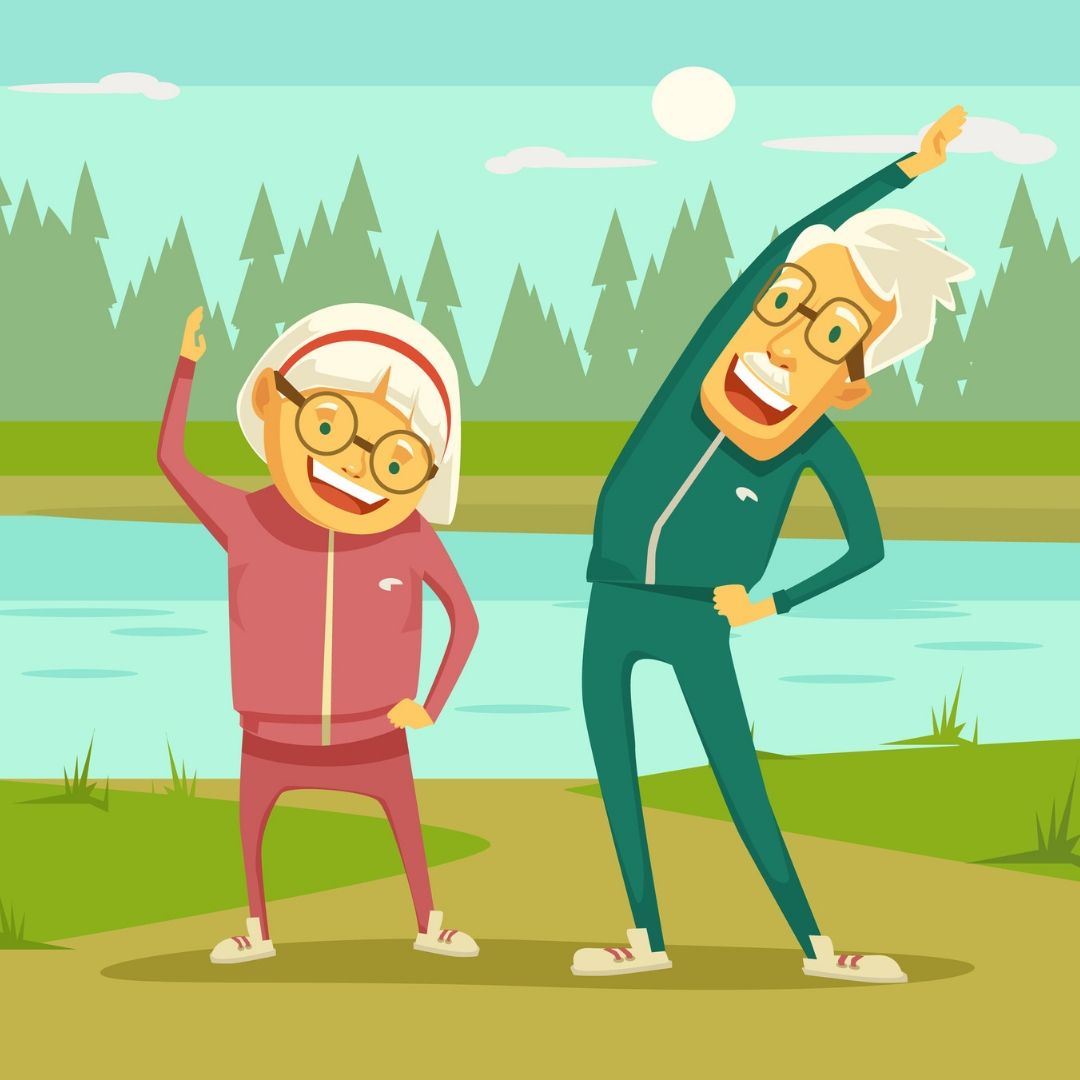Preventing falls in the elderly

Hello everyone and welcome to our October blog. This month we’re going to talk about the older generation of people we are fortunate enough to share this world with. It only seemed fitting given that on the 1st of this month it’s International Day of Older Persons. It’s no secret that the elderly population is growing. People are living longer, and in many cases, having to work longer too. Being a physio is not just about treating sports injuries. We treat people from all walks of life and we certainly see our fair share of elderly patients.
Most people know that as we age our bodies go through a process of gradual degeneration. Our joints are susceptible to wear and tear, our muscles weaken and other areas of the body like eye-sight also become affected. Our ability to move efficiently declines and this can lead to an in-creased risk of falls and subsequent injury. Falls are actually one of the leading causes for injury in the elderly population and it’s not unusual for us physios to be called upon to help in the after-math of a fall. Common injuries include hip and wrist fractures, as well as shoulder and head trauma. It’s our job to get these people moving again and on a speedy road to recovery.
Prevention is better than cure
We are always there for anyone who has been unfortunate enough to experience a fall and have a resultant injury. Whether it’s getting them moving again following hip surgery or a wrist fracture, we have the tools and knowledge to get them back to their best. However, everyone knows that prevention is better than cure. And there are lots of things that can be done to prevent falls in the elderly. Let us outline some things we can do to help:
• Biomechanical assessment - we know human biomechanics. We can look at how you move and highlight any dysfunctions within your body that may be a risk factor for falling. We can then provide you with hands-on treatment, a home exercise program and sound advice on how you can nip those issues in the bud to reduce your risk of falling.
• Strength and conditioning exercises - a common cause of falling is weakness, particularly in the lower limbs. We can test your strength and provide you with a gentle strengthening program to ensure you are working towards a stronger body that can support you better as you age.
• Balance and coordination exercises - our balance and coordination can also be affected as we get older. And you can imagine, if your balance is poor, then the likelihood of falling can in-crease. Well fear not, we can provide you with exercises that aim to improve your balance and coordination. You’ll be feeling steady on your feet in no time!
• Advice for the home setting - it’s not just issues with the body that increase the risk of falls. It’s also important your home is set up in a way to reduce your risk of falling. For some elderly people, ensuring that carpets, rugs and mats are removed from common walkways, and ensur-ing there is plenty of room to maneuver around furniture can greatly reduce the risk of falling in the home.
• Help with walking aids - some elderly people require the use of walking sticks or frames. We’re here to help you get the best out of your walking aids. We can teach you how to use them so that they are a benefit to you rather than a hindrance.
During a consultation, we may highlight other areas that need attention outside of our domain. You may need a medication review from your GP to ensure your medications are not a risk factor. If you have poor eyesight, you may require the help from an optician or optometrist. And if your feet require some further expert eyes, we will be able to point you in the direction of a good podia-trist. We’ll ensure you know exactly which areas require attention so that the risks of falling are as low as possible.
We understand that getting older is often a challenge and that it can be very difficult to come to terms with a body that is not working as well as it once was. We are here to tell you that help is at hand and we promise it’s not all doom and gloom. You have the power people! If you eat well, drink heaps of water, exercise regularly and work at keeping your body the temple it deserves to be throughout your life, your body will thank you for it later!
References:
1. United Nations. 2019. International day of older persons. [Online]. Available from: https://www.un.org/en/events/olderpersonsday/. [Accessed 06 Sept 2019].
2. Waldren, N. et al. 2012. Falls prevention in older adults: Assessment and management. Aus-tralian Family Physician. 41 (12). 930-935. https://www.racgp.org.au/afp/2012/december/falls-prevention/
3. Richardson, M. et al. 2019. A study to evaluate the potential contribution of medication use to falls in elderly patients presenting to an acute hospital. In Hospital Pharmacists Association of Ireland Annual Conference 2019.
Uploaded : 26 September 2019




